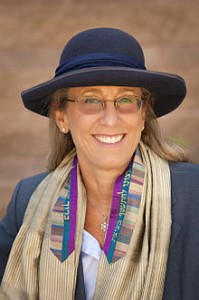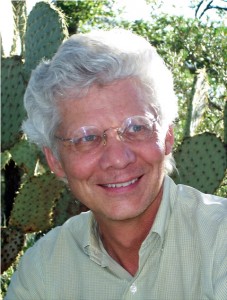This past spring, you may have seen announcements in our e-news and on our website about programs for veterans offered by Arizona Humanities. The programs took form in two ways: book discussion groups and writing workshops. We worked hard to make this experience a relaxed, friendly and comfortable place for veterans to share and discuss stories – from books and articles as well as their own. This month we’ll take a look back at the book discussion groups and in a future e-news will give you a look into the writing workshops.

In February and March at Mesa Community College, the book group for female veterans was led by Rabbi Bonnie Koppell, Command Chaplain of the 807th Medical Command (Deployment Support), Associate Rabbi at Temple Chai, and Veterans Book Group Facilitator. As one of the first female Rabbis in the United States, Rabbi Koppell also holds the distinct honor of having been the first female Rabbi in the U.S. Military. Rabbi Koppell said, “The women in this group were so excited to be with other female veterans. They recognized a unique bond with other women who shared this very unique experience. It was very validating to know that they were heard and understood.”
Each week female veterans gathered to share a meal before talking about the readings and allowed participants to get to know each other better. The session had specific readings designed and picked out for the group. Participants read, Be Safe, I Love You, a novel by Cara Hoffman published in 2014, Hymn, an article by Charlotte M. Brock from the 2008 book POWDER Writings by Women in the Ranks, from Vietnam to Iraq, the essay Frago from Phil Klay’s 2014 book Redeployment, and many more.
One woman commented, “I enjoyed the readings, the instructor, and the female veterans. I enjoyed meeting with military veterans. The group was excellent!”
The opportunity to explore the shared experience of female veterans stood out for others. When asked what she enjoyed most about the group, one woman answered, “Other perspectives from women who served before me. Things have changed a great deal!”
Rabbi Koppell concluded,
[gdlr_quote align=”center” ]“Humanities programs create a forum in which to build relationships and provide an environment to share and process experiences in a supportive environment.”[/gdlr_quote]

The second group this spring took place at Burton Barr Library in Phoenix and was open to both female and male veterans. Dr. Dan Shilling, Ph.D. and Vietnam Veteran, whose love of literature began during his time in Vietnam, led the five-week group. Shilling said, “We simply wanted to use the readings as a way into the veteran experience, so they might see their service and life afterward in a different light – one that considers the stories of other veterans.”
One participant commented, “I enjoyed the diverse group and courses, their diverse opinions. It was apparent that all of the participants felt free to express their opinions.”
Readings were from a wide array of sources including: the novel Ceremony by Leslie Marmon Silko written in 1977, to The Worst Day of My Life Is Now New York’s Hottest Tourist Attraction by Steve Kendall which was a blog post on BuzzFeed in 2014, to Abraham Lincoln’s Gettysburg Address speech from 1863, to Shiloh, a short story by Bobbie Ann Mason published in 1982.
Shilling noted, “One nice thing about the group is that there didn’t seem to be barriers between old and newer vets, liberal and conservative vets, and men and women vets…the group was very mixed: from a Korean vet in his 80s to a Gulf War vet in his 20s.”
Sometimes the group and readings surprised veterans as one observed,
[gdlr_quote align=”center” ]”I did not expect to connect to the other members so readily.”[/gdlr_quote]
Shilling remarked, “Most vets left the program with an enhanced appreciation of their military experience, and how that history affects them today.”
As in the female book group, a meal was served each week allowing everyone to come together and get to know one another before discussions. Finally, one participant observed that the book group was, “An opportunity to reflect on personal experience and opinion and the enlightenment that comes from getting to know others with similar yet differing experiences.”
Thank you to all the facilitators and clinicians that made these groups possible. We also would like to thank Nancy Dallett, the Arizona State University Office for Veteran and Military Engagement, and the Arizona State University Pat Tillman Veterans Center for their partnership in promoting and implementing these programs.
If you or your organization is interested in hosting or attending a veterans program, please contact our office at 602-257-0335.

